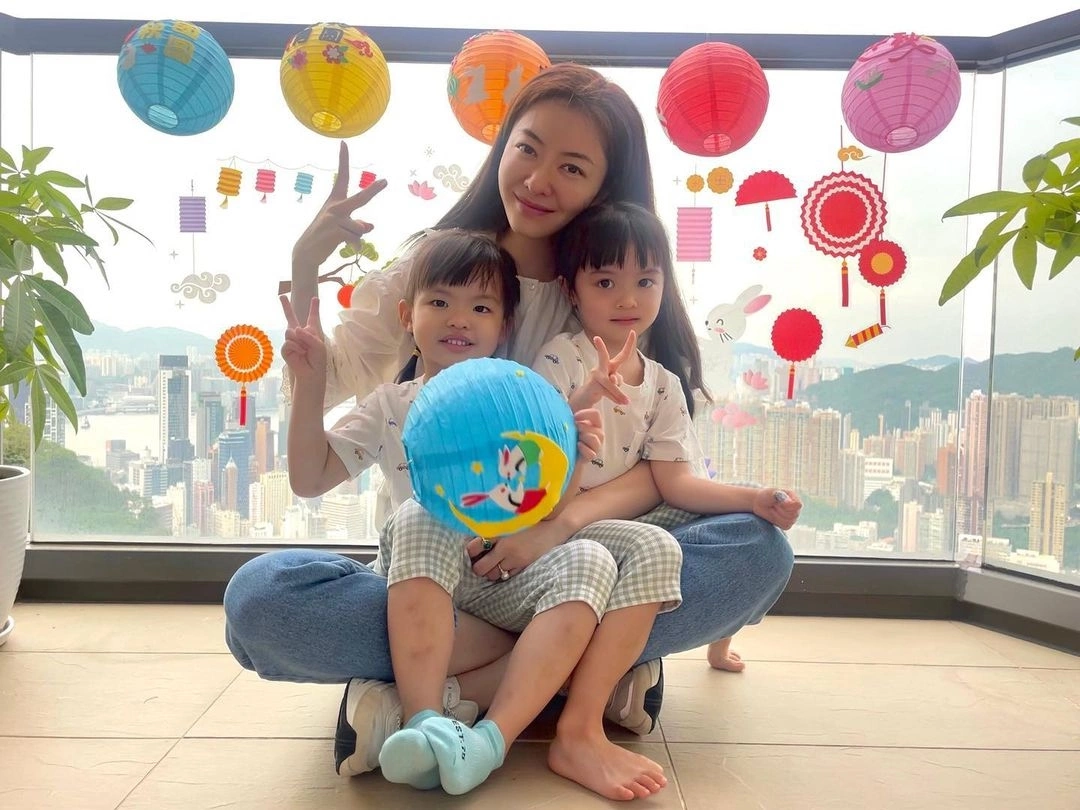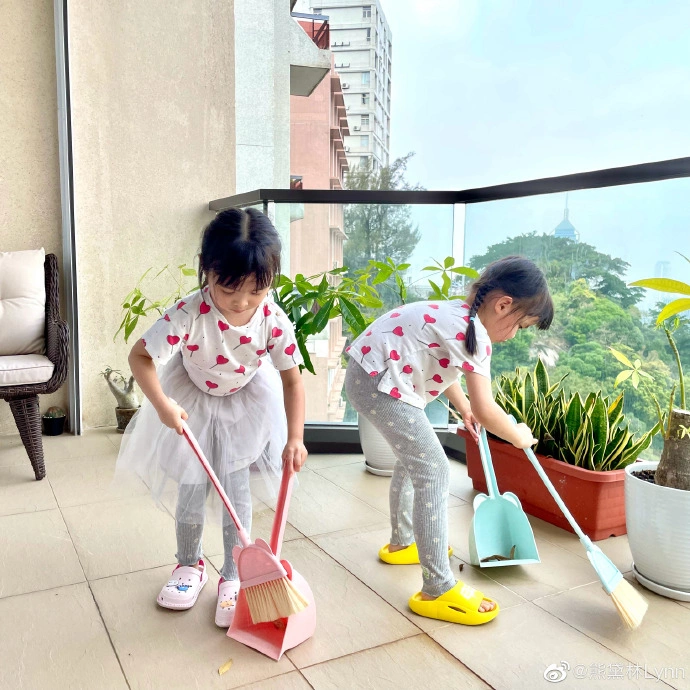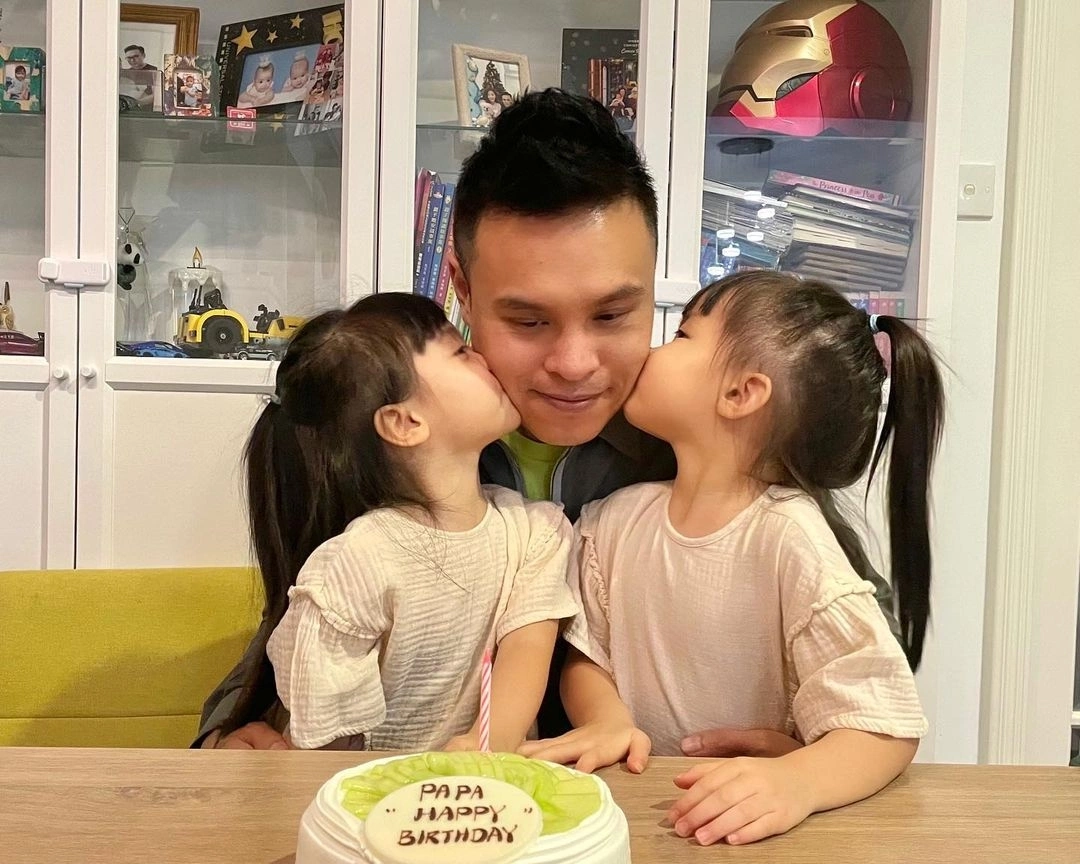

Hong Kong-born Hung Dai Lam is a well-known actress, supermodel, and entrepreneur. In 2016, she married businessman Guo Ka-tung, and at the age of 38, she gave birth to twin girls. One of the daughters is said to resemble her father, while the other is a carbon copy of her mother.
The supermodel once happily shared about her husband in the media, speaking of his loving and caring nature, and how he manages to make time for his family despite his busy schedule. During her pregnancy, her husband personally ensured her comfort, providing her with nutritional food and supplements. He also spared no expense for her delivery, spending HK$200,000 (nearly VND 600 million). Furthermore, he generously gifted his mother-in-law a HK$ 30 million (VND 87 billion) apartment to facilitate easy access for his in-laws to help care for the grandchildren.

Hung Dai Lam and her husband’s twin daughters, Kaylor and Lyvia, are now seven years old. The supermodel has carefully nurtured her children to be independent from a young age. Despite their celebrity mother and wealthy father, the girls are not spoiled. Hung Dai Lam often shares photos on Instagram of her daughters helping with household chores and taking pride in maintaining a clean home.


The twins are said to be very attached to their father. When Hung Dai Lam resumed her acting career, her husband wholeheartedly supported her and took on the responsibility of caring for their daughters. However, the supermodel has since stepped back from the entertainment industry to focus on her family. Occasionally, she attends events and appears in advertisements, captivating audiences with her ageless beauty and toned figure.


In many families, childcare often falls predominantly on the mother, with the father taking a less active role. However, there are numerous benefits to husbands sharing household responsibilities and actively participating in childcare.
1. Strengthening Family Bonds
A father’s involvement in childcare strengthens the bond not only between father and child but also among all family members. When children feel loved and cared for by both parents, it creates a warm and happy family environment. Sharing household chores and spending quality time with children also create lasting memories.
2. Sharing Responsibilities
When men take on household duties, responsibilities are more evenly distributed. This reduces the burden on women and promotes fairness in the relationship. Both partners have the opportunity to rest and recharge, improving the overall quality of family life. Working together as a team fosters cooperation and a sense of unity.
3. Positive Role Modeling
Children learn important values about gender equality when they see their fathers actively involved in household chores and childcare. This shapes their understanding of the roles of both genders in society. They recognize that caring for the family is a shared responsibility, which lays the foundation for healthy and equitable relationships in the future.
4. Skill Development
Men who engage in household duties develop valuable skills such as cooking, cleaning, time management, and problem-solving. These skills are beneficial not only in the home but also in their professional and daily lives. Knowing how to care for a family boosts men’s confidence in social and familial situations.
5. Improved Mental Health
Participating in childcare and household duties can positively impact mental health. The sense of responsibility and connection to family can enhance mood and reduce stress, anxiety, and depression. These activities also provide men with an outlet to express their emotions and build self-confidence.
6. Adaptability
Men who are actively involved in daily tasks become more adaptable to unexpected situations. This not only makes them better fathers but also improves their overall life management skills. Being prepared for unforeseen circumstances creates a sense of security and stability for the entire family.
7. Redefining Gender Roles
When men take on household and childcare responsibilities, they challenge societal norms and contribute to the promotion of gender equality in the family and society. This shift encourages a more positive perception of the roles of both men and women, moving away from outdated stereotypes. Recognizing the value of both parents’ contributions to the family fosters a more progressive society.





































